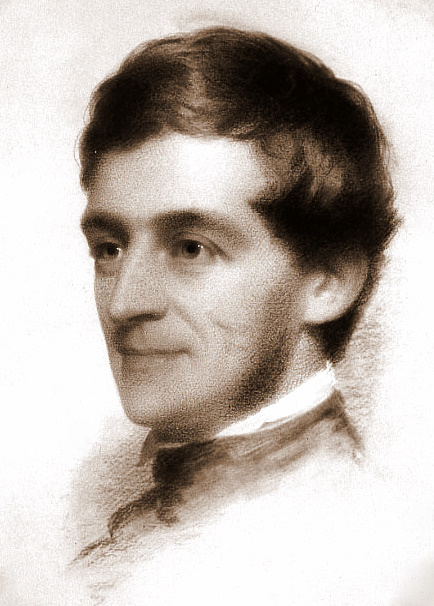
Ralph Waldo Emerson
Ralph Waldo Emerson (May 25, 1803 – April 27, 1882), who went by his middle name Waldo, was an American essayist, lecturer, philosopher, abolitionist, and poet who led the transcendentalist movement of the mid-19th century. He was seen as a champion of individualism and a prescient critic of the countervailing pressures of society. Friedrich Nietzsche considered him "the most gifted of the Americans" and Walt Whitman referred to him as his "master". Emerson gradually moved away from the religious and social beliefs of his contemporaries, formulating and expressing the philosophy of transcendentalism in his 1836 essay "Nature". Following this work, he gave a speech entitled "The American Scholar" in 1837, which Oliver Wendell Holmes Sr. considered to be America's "intellectual Declaration of Independence." Emerson wrote most of his important essays as lectures first and then revised them for print. His first two collections of essays, Essays: First Series (1841) and Essays: Second Series (1844), represent the core of his thinking. They include the well-known essays "Self-Reliance", "The Over-Soul", "Circles", "The Poet", and "Experience." Together with "Nature", these essays made the decade from the mid-1830s to the mid-1840s Emerson's most fertile period. Emerson wrote on a number of subjects, never espousing fixed philosophical tenets, but developing certain ideas such as individuality, freedom, the ability for mankind to realize almost anything, and the relationship between the soul and the surrounding world. Emerson's "nature" was more philosophical than naturalistic: "Philosophically considered, the universe is composed of Nature and the Soul." Emerson is one of several figures who "took a more pantheist or pandeist approach by rejecting views of God as separate from the world." He remains among the linchpins of the American romantic movement, and his work has greatly influenced the thinkers, writers and poets that followed him. "In all my lectures," he wrote, "I have taught one doctrine, namely, the infinitude of the private man." Emerson is also well known as a mentor and friend of Henry David Thoreau, a fellow transcendentalist. |
 = Recordings are available for online listening.
= Recordings are available for online listening.
 = Recordings were issued from this master. No recordings issued from other masters.
= Recordings were issued from this master. No recordings issued from other masters.
Recordings
| Company | Matrix No. | Size | First Recording Date | Title | Primary Performer | Description | Role | Audio |
|---|---|---|---|---|---|---|---|---|
| Victor | B-13994 | 10-in. | 10/23/1913 | The mountain and the squirrel | Cora Mel Patten | Recitation | author | |
| Victor | C-14467 | 12-in. | 2/17/1914 | Home thoughts from abroad | Cora Mel Patten | Recitation | author | |
| Victor | B-30566 | 10-in. | 8/12/1924 | At the end of the sunset trail | Marcia Freer ; Lewis James | Female-male vocal duet, with orchestra | author | |
| Columbia | 140144 | 10-in. | 11/17/1924 | At the end of the sunset trail | Lewis James ; Elliott Shaw | Male vocal duet, with instrumental quintet | author |
Citation
Discography of American Historical Recordings, s.v. "Emerson, Ralph Waldo," accessed November 17, 2024, https://adpprod2.library.ucsb.edu/names/314029.
Emerson, Ralph Waldo. (2024). In Discography of American Historical Recordings. Retrieved November 17, 2024, from https://adpprod2.library.ucsb.edu/names/314029.
"Emerson, Ralph Waldo." Discography of American Historical Recordings. UC Santa Barbara Library, 2024. Web. 17 November 2024.
DAHR Persistent Identifier
External Sources
Wikipedia: Ralph Waldo Emerson
Discogs: Ralph Waldo Emerson
Grove: Ralph Waldo Emerson
IMSLP: Ralph Waldo Emerson
Britannica: Ralph Waldo Emerson
Linked Open Data Sources
LCNAR: Emerson, Ralph Waldo, 1803-1882 - http://id.loc.gov/authorities/names/n78085476
Wikidata: Ralph Waldo Emerson - http://www.wikidata.org/entity/Q48226
MusicBrainz: Ralph Waldo Emerson - https://musicbrainz.org/artist/d54afda5-1dbb-489a-a150-ef9c33b5c8ac
Getty ULAN: Emerson, Ralph Waldo - http://vocab.getty.edu/ulan/500246883
ISNI: 0000 0001 2100 0403 - http://www.isni.org/isni/0000000121000403
Wikipedia content provided under the terms of the Creative Commons BY-SA license
Feedback
Send the Editors a message about this record.
